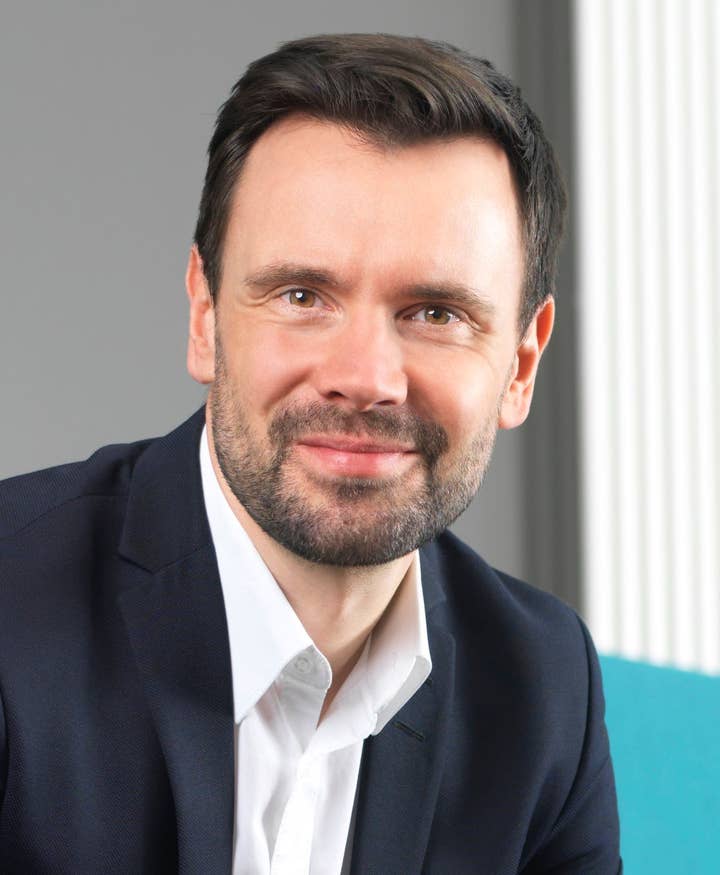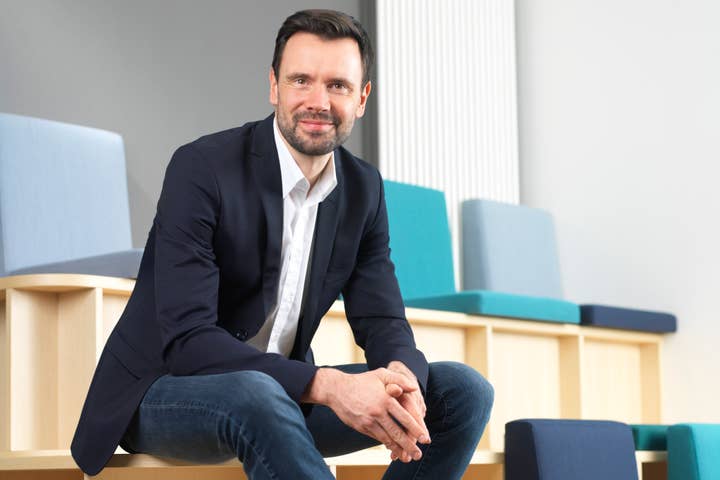Gamescom: "We can seize the opportunity to prove how digital events can work"
Game MD Felix Falk on the all-digital Gamescom 2020, and the "responsibility" of providing a focal point for the industry during the COVID-19 pandemic
The summer of video games has typically been marked by two clear high-points: E3 and Gamescom.
One at the start of the summer, the other towards the end. One in the United States, the other in Europe. One historically targeted at the industry and the press, the other the biggest consumer event of its kind. While both have changed over the years, their importance to those who want to understand the present and near future of video games is very well established.
This year will be different. The outbreak of COVID-19 has seen the cancellation and postponement of physical events throughout the world. In April, the Entertainment Software Association confirmed that E3 would not take place in any form in 2020, depriving the industry of its most visible platform for new announcements in a year that heralds the arrival of both a new Xbox and a new PlayStation.
Rather than follow suit, the organisations behind Gamescom -- the German developer association Game, and Koelnmesse -- committed to delivering an all-digital event this summer, and today, those plans have been unveiled.
"We, as an industry, have a responsibility together to be innovative in such a crisis"
"We asked ourselves how we should react, because so many events are calling off everything and going for next year," says Felix Falk, the managing director of Game. "But really quickly we decided we definitely wanted to go digital. For one thing because our digital strategy greatly expanded last year... We had such great progress that we didn't want to wait another year to proceed.
"And also, we are feeling -- and I think it's the same thing for the games industry as a whole -- that we have a responsibility in these times where games are proved to bring joy to people, and bring people together... We, as an industry, have a responsibility together to be innovative in such a crisis."
Last year saw the debut of perhaps the biggest single addition to Gamescom in its lifetime: the Geoff Keighley-fronted Opening Night Live, which added the kind of platform for major announcements for which E3 is known. Other digital formats were also introduced, but Opening Night Live, in particular, was a major success, attracting more than 500,000 concurrent viewers at its peak.

With no physical event taking place in Cologne, the goal was to represent the full Gamescom experience online. More than 30 distinct concepts were explored, including a fully virtual showfloor in which attendees could play games remotely via streaming technology.
"There were many [problems] connected to that," Falk says. "One thing is technical, but also, we as Gamescom, we want to have an offering for everybody. We represent the whole industry, but cloud gaming is not something everybody can use this year... Many of our most important stakeholders felt it was not a safe environment in which to show their products in the best possible way."
Falk adds: "Don't try to put something from the [physical] world directly into digital -- it doesn't work. Find a very focused, pure digital way."
The final form of Gamescom 2020 will include content produced by the event itself: Opening Night Live will return on August 27, while each day from August 28 to 30 will feature developer interviews under the Gamescom Studios brand, and a wrap-up on the Gamescom Daily Show. There will also be a dedicated channel for smaller games, Awesome Indies, and a Best of Show event at the end of the week.
A hub website, Gamescom Now, will bring all of that content together, while also linking to events and activations from exhibiting companies, wherever they are taking place on the internet. A publisher's game could be part of Opening Night Live, have its lead designer interviewed for Gamescom Studios, and then stage its own Twitch stream later in the week, with all of it will be hosted and scheduled through the Gamescom Now website.
"Don't try to put something from the [physical] world directly into digital -- it doesn't work"
"We're not presenting all of the content ourselves, but relying on the content of everybody who's partnering," Falk continues. "We're building the hub that allows everybody to find everything that happens at Gamescom.
"The people are staying in a circle around Gamescom, going from one event and one type of content to another... It's important for us that everybody is not starting before Opening Night Live, and afterwards everything comes together and multiplies through the concentration of content and communities."
Alongside this consumer-facing platform will be Devcom, the developer-focused conference that debuted in 2017. This year's event will follow Falk's principle of not "[putting] something from the [physical] world directly into digital." Devcom 2020 will take place across 14 days, with pre-recorded talks to ensure quality -- a more open format based on feedback from professionals who questioned the value of a more condensed two or three day programme in an online setting.
"The core conference will be expanded to two weeks, to make sure that everyone can participate in the talks, and also the matchmaking, over a longer period of time," Falk adds. "It has to be two weeks, otherwise people will not be able to consume all of the content we're giving."
For this strategy to work, it will require the myriad publishers and developers who were planning to reveal more of their games this year to adhere to Gamescom's schedule -- to align their own marketing plans with its August 27 to 30 window, rather than operating to bespoke schedules. For his part, Falk is confident that the feedback from Gamescom's industry partners suggests a strong desire for the kind of focal point that physical events used to provide.
"We cannot develop by squeezing more and more people into the halls. That's not the aim"
"It's a responsibility for Gamescom, as maybe the only bigger event of this year at all, to make the games industry come together, and multiply what they can spread into the world," he says. "It's a responsibility to be the only event in a very challenging year for everybody.
"The coverage and the fans you reach with just your own events, it's quite limited to the people who already know you. If you want to reach new fans and bigger audiences... you have to come together. You can't do it on your own. That's why we have the support of the industry."
If successful, it could also lay the groundwork for the future of Gamescom as a whole. The event's push into digital really started in 2019, and while the absence of a physical event is a commercial blow -- Falk describes 2020 as "an investment year" -- it affords a unique freedom to experiment with new ideas and formats.
"It's important because, in 2021, there will be a Gamescom on site combined with digital," he says. "This concept allows us to do that, because it can all be combined [with a physical event]. We're really happy to have a situation where we as an association, together with our partner Koelnmesse, we can seize the opportunity to prove how digital events can work.
"We cannot develop by squeezing more and more people into the halls. That's not the aim. The aim is to reach a worldwide audience, much broader than we have in the past. With Gamescom Opening Night Live, which had more than 500,000 concurrent viewers, we have proven that we are able to do so. It's great to build on that this year."









